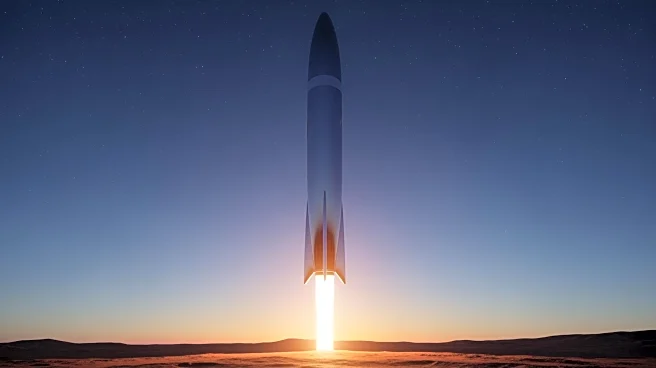What's Happening?
Blue Origin, owned by Jeff Bezos, successfully launched its New Glenn rocket carrying NASA's twin spacecraft destined for Mars. The launch, which took place at Cape Canaveral, Florida, marked a significant achievement as Blue Origin managed to recover
the booster for reuse, a feat previously accomplished only by SpaceX. The mission aims to study Mars' climate history, with the spacecraft expected to arrive in 2027. The launch faced delays due to weather conditions and solar activity but ultimately proceeded successfully.
Why It's Important?
This successful launch and booster recovery represent a major milestone for Blue Origin in the competitive private space industry. It demonstrates the company's capability to reduce costs through reusable technology, potentially increasing the frequency of future missions. The achievement also intensifies the rivalry between Blue Origin and SpaceX, both vying for contracts and recognition in space exploration. The mission's success could bolster Blue Origin's position in upcoming NASA bids, particularly for lunar exploration, and contribute to the broader goal of human exploration of Mars.
What's Next?
The spacecraft will initially enter a safe parking orbit to study space weather before heading to Mars in 2026 when the planets align favorably. Blue Origin's success may influence NASA's decision-making in future mission contracts, and the company could play a more significant role in lunar exploration. The reusable booster technology could lead to more cost-effective and frequent space missions, potentially accelerating the timeline for human exploration of Mars.

















